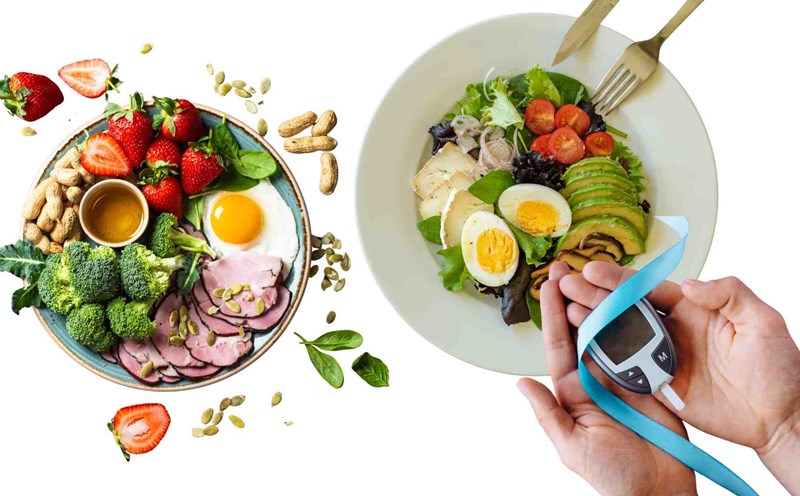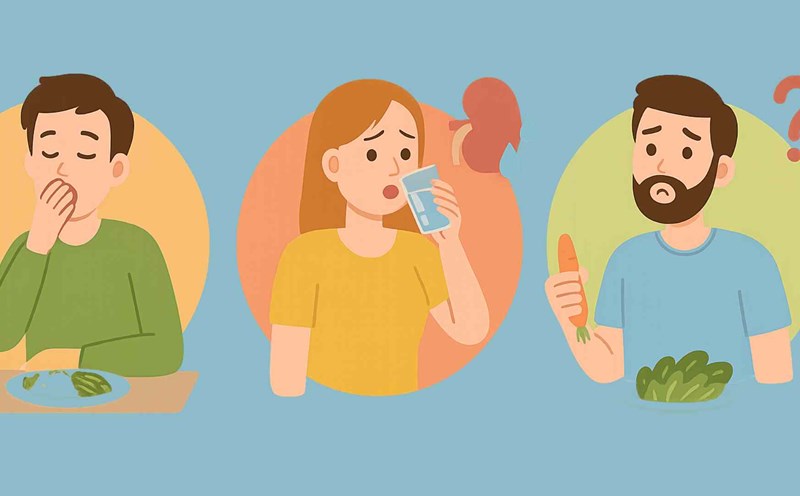If you eat cakes or drink milk tea while hungry, your blood sugar will spike, forcing insulin to work hard to regulate. This not only makes you feel sleepy but also makes you crave and eat more.
Conversely, if you eat a full meal first, especially protein-rich foods such as eggs, lean meat and vegetables, and then eat sweets after about 10 minutes, your blood sugar will increase much more slowly. This way of eating can help reduce blood sugar levels by up to 53% compared to eating sweets on an empty stomach, and peak blood sugar levels also drop by nearly half.
This is because protein, fiber and fat in main meals will form a buffer, helping to slow down the digestion and absorption of sugar into the blood. Thanks to that, blood sugar will be more stable.
When you are full before eating sweets, the small intestine will have enough "power" to process up to 90% of fructose, converting them into glucose or organic acid, reducing the burden on the liver. However, if you eat sweets on an empty stomach, the small intestine is not ready to work, so fructose will flow straight into the liver, causing the liver to overload and causing metabolic pressure.











